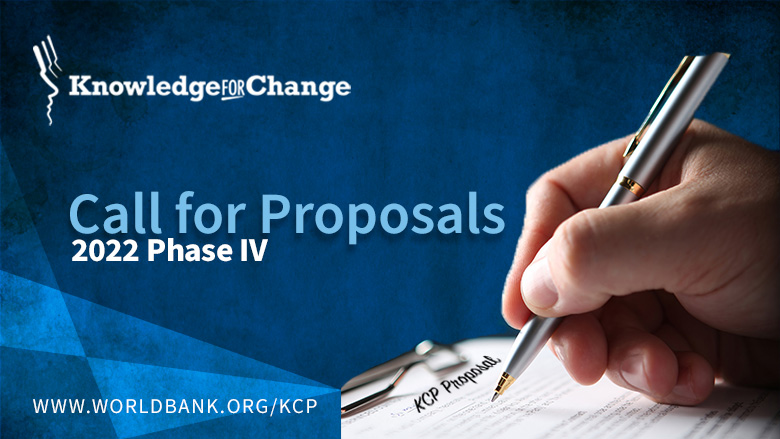The 2022 Call for Proposals (CFP) for the Knowledge for Change Umbrella Program (KCP) Phase IV is now open. The KCP aims at promoting evidence-based policy development in support of poverty reduction and shared prosperity by delivering high-impact, policy-relevant research and knowledge products. Since the commencement of its operation in 2002, the KCP has supported more than 360 projects on research, data, and analytics, with total funding of US$72 million. The following are the KCP’s main goals:
- Original Research: produce rigorous and relevant fundamental research in support of evidence-based policy making in international development, anticipating future needs and knowledge gaps as well as responding to current policy challenges.
- Operational Relevance: support World Bank Group country operations in the design, implementation, evaluation, and modification of development interventions in an effective and efficient manner.
- Open Knowledge: maximize the impact of research and data by making knowledge accessible and actionable, particularly through partnerships and capacity-building activities.
The KCP launched its fourth phase in late 2020, with an objective to carry out activities related to research, data, and analytics around the following IDA special themes:
- Jobs and economic transformation
- Fragility, conflict, and violence
- Climate change
- Gender and development
- Governance and institutions
- Cross-cutting issues: debt and financial fragility; human capital; disability; and technology
